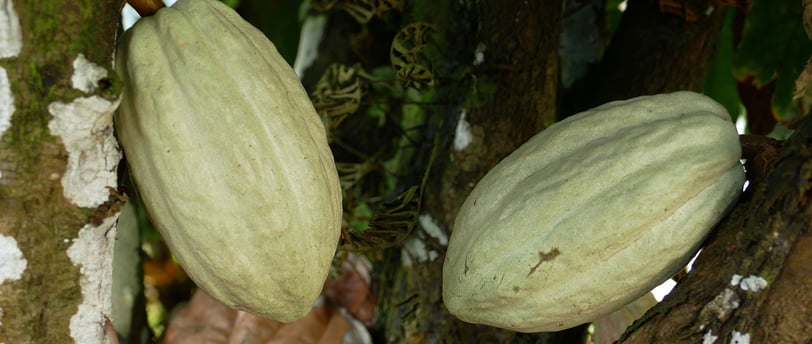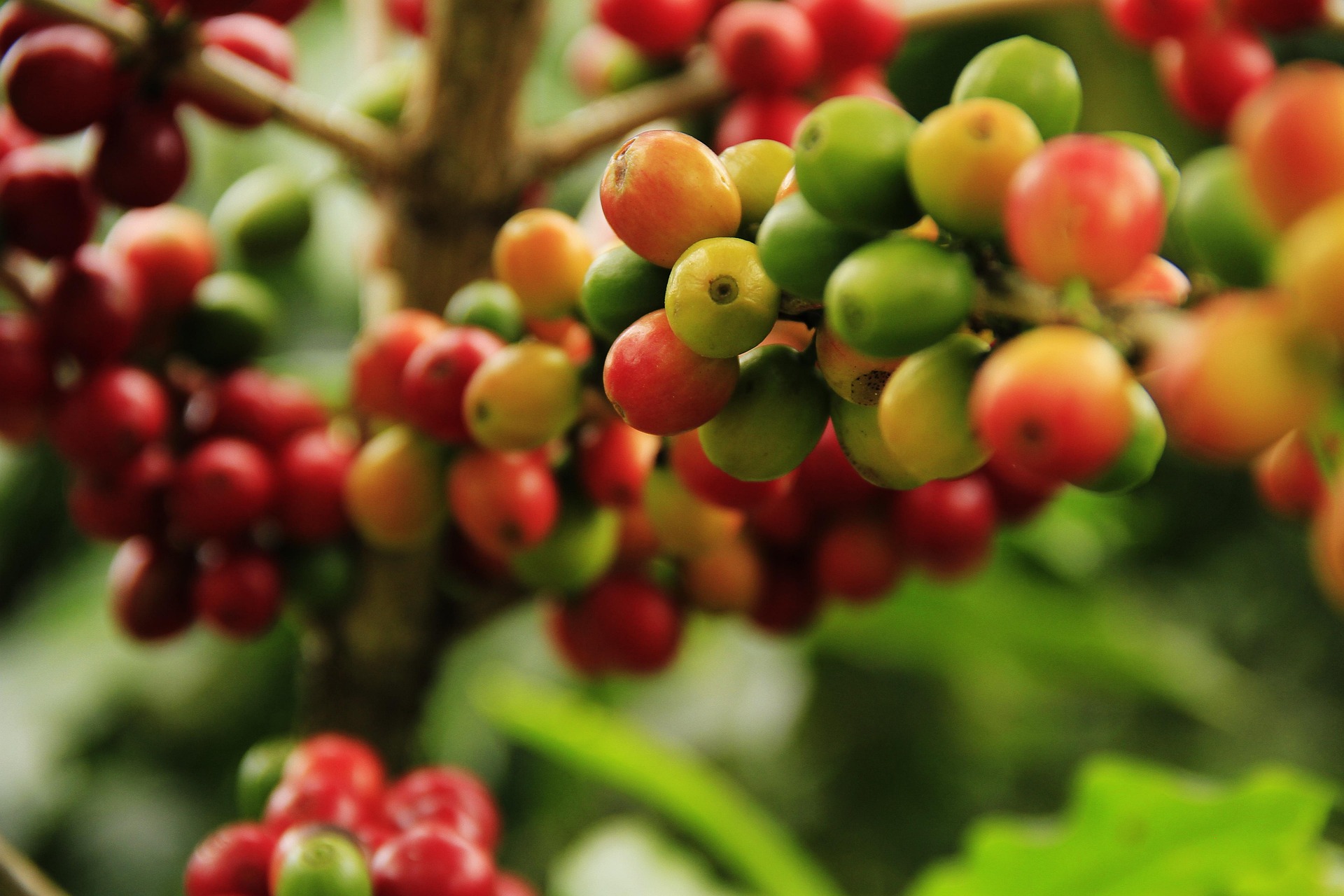Cocoa Beans Supply: Navigating African Challenges and Exploring Latin American Opportunities
5/17/20255 min read


The Current State of Cocoa Bean Supply
The global cocoa bean supply chain is predominantly driven by a few key producing countries, with Africa standing out as the leading continent in cocoa production. The Ivory Coast and Ghana are the top two producers, together accounting for approximately 60% of the world's cocoa supply. According to recent statistics, the Ivory Coast produces around 2 million metric tons annually while Ghana contributes nearly 883,000 metric tons. These figures illustrate not only the scale of production but also the economic significance of cocoa beans for these countries, where the crop serves as an essential export commodity.
In contrast, Latin American countries such as Ecuador and Brazil also contribute to global cocoa supplies, albeit on a smaller scale. Ecuador ranks as the largest producer in South America, with an annual production of around 290,000 metric tons. The focus on fine and flavor cocoa varieties allows Ecuador to capture premium market segments, differentiating its offerings from those of the African producers. Although the production numbers in Latin America are less formidable compared to Africa, the region is increasingly recognized for its potential in diversifying the global cocoa supply chain.
Despite the substantial contributions from African nations, the cocoa industry faces significant challenges that threaten its sustainability and profitability. Issues such as climate change, which alters weather patterns and affects crop yields, pose dire risks to farmers. Additionally, the continual fluctuation in global cocoa prices often leaves smallholder farmers vulnerable, struggling with insufficient income to sustain their livelihoods. Concerns regarding exploitation and labor practices further exacerbate the ethical dilemmas within the supply chain, prompting calls for more sustainable and equitable strategies. Addressing these challenges is imperative to ensure the long-term viability of Africa's cocoa bean supply amidst the growing interest in Latin American opportunities within the market.
Crisis and Challenges Facing African Cocoa Producers
The cocoa industry in Africa is beset by numerous challenges that threaten the livelihoods of producers and the sustainability of the supply chain. One of the most significant issues confronting cocoa producers is climate change, which has led to unpredictable weather patterns, including erratic rainfall and prolonged droughts. These climatic shifts adversely affect cocoa yields, as cocoa trees require stable conditions to thrive. As a result, many farmers face diminished production, compromising their income and food security.
Adding to the challenges, the prevalence of pests and diseases has escalated, undermining the health of cocoa crops. The cocoa pod borer and black pod disease are among the most destructive threats, causing substantial losses in yield. Farmers often lack access to timely and effective pest management solutions, which further exacerbates their predicament. This pest crisis not only impacts individual farmers but also has broader implications for the entire cocoa supply chain.
Economic instability in several African nations also poses serious challenges to cocoa producers. Fluctuating market prices, exacerbated by global commodity price changes, make it difficult for farmers to predict their earnings. The lack of access to financing mechanisms compounds these issues, as farmers are unable to invest in necessary improvements to cultivation techniques or infrastructure. In tandem with economic challenges is the issue of child labor, which is rampant in the cocoa-producing regions. Many families rely on the income generated through cocoa farming, often resorting to unethical labor practices to meet financial demands. This not only raises ethical concerns but also jeopardizes the reputational integrity of the cocoa products sourced from the region.
These intertwined crises necessitate urgent intervention from governments and organizations aimed at supporting cocoa producers. Addressing climate change impacts, enhancing pest management, stabilizing market conditions, and enforcing ethical labor practices are vital steps needed to restore the viability of cocoa production in Africa.
Opportunities in Latin America's Cocoa Industry
Latin America is emerging as a formidable player in the cocoa industry, capitalizing on its unique advantages to meet the growing global demand for high-quality cocoa. The region boasts a rich biodiversity, which allows for the cultivation of a variety of cocoa strains, each contributing distinct flavor profiles highly sought after in the chocolate market. This diversity not only enriches the region's agricultural capacity but also enhances the potential for producing premium cocoa that appeals to gourmet and specialty chocolate brands.
Furthermore, the trend toward organic and sustainable cocoa production within Latin America presents significant opportunities for farmers and producers. With increasing consumer preferences for ethically sourced products, Latin American countries are positioned to lead in organic cocoa cultivation. Governments and agricultural bodies are promoting sustainable farming practices that not only protect the environment but also enhance the livelihoods of local farmers. This commitment to sustainability can serve as a strong market differentiator in an industry increasingly focused on ethical consumption.
Several Latin American countries have initiated successful cocoa sector investments, creating models worth emulating. For instance, Ecuador has become known for its fine aroma cocoa, establishing a reputation that attracts international buyers. The nation has implemented certifications that endorse its cocoa as sustainable, thereby gaining access to niche markets. Similarly, countries like Peru and Colombia are investing in innovation through research and development, improving yield and quality. These efforts are integral in positioning Latin America as a reliable source of high-quality cocoa.
Collaboration between African and Latin American nations could further enhance cocoa production capabilities, leveraging Africa's established cocoa markets alongside Latin America's innovative practices. Such synergies can lead to knowledge exchanges and shared best practices that ultimately benefit both regions. By exploring and investing in these opportunities, Latin America can strengthen its foothold in the global cocoa landscape while contributing to the sustainable growth of the industry.
Strategies for a Sustainable Cocoa Future
Ensuring a sustainable future for the cocoa supply chain necessitates a multi-faceted approach that addresses challenges faced by African producers while exploring opportunities in Latin America. One critical strategy involves innovation in agricultural practices. By adopting sustainable farming techniques, such as agroforestry, intercropping, and organic farming, cocoa farmers can not only enhance yield but also protect biodiversity and improve soil health. These practices can significantly reduce dependency on chemical fertilizers and pesticides, ultimately fostering an eco-friendly environment conducive to the growth of high-quality cocoa beans.
Another pivotal strategy is investing in farmer education. Empowering farmers with knowledge about best farming practices, pest management, and market dynamics can lead to improved productivity and income stability. Collaborations with agricultural extension services, NGOs, and educational institutions can facilitate training programs that equip farmers with up-to-date information on sustainable cocoa cultivation methods, thus enhancing their resilience to economic fluctuations.
Strengthening cooperatives also plays a vital role in creating a sustainable cocoa future. By banding together, farmers can gain better bargaining power, secure fair prices for their cocoa beans, and access shared resources. Fostering a collective approach enables cocoa producers to invest in infrastructure, such as processing facilities, which can increase the value of their products and create additional income streams. Furthermore, promoting fair trade practices not only supports equitable pricing for farmers but also enhances consumer awareness of ethical sourcing.
The importance of international partnerships cannot be overstated. Collaborations between governments, private enterprises, and philanthropic organizations can pave the way for investments in technological advancements and supply chain improvements. These partnerships facilitate the sharing of best practices, funding for sustainable initiatives, and capacity-building opportunities that ultimately lead to a resilient cocoa supply chain benefiting farmers in both Africa and Latin America.

Exports
Connecting Latin America and Eastern European markets.
Trade
Soft Commodities
trade@tepuytrading.com
+58 412 559 21 26
+7 925 052 23 46
© 2025. All rights reserved.
